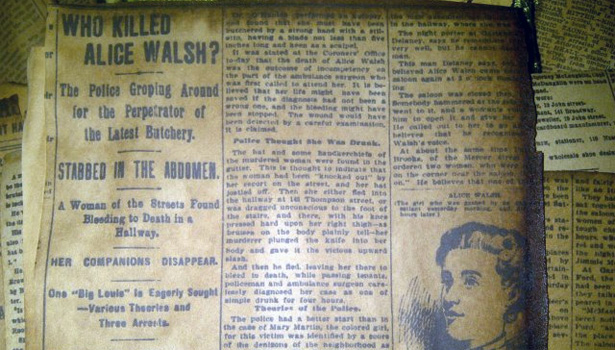CLASS SESSION
|
TOPIC
|
REQUIRED READINGS
|
Week 1
March 29
|
Introductions and Overview
|
|
Week 2
April 5
|
Digital History I
|
Dougherty
and Nawrotzki (Editors), pp. 1-74 ("Introduction"
through "The Historian's Craft, Popular Memory, and Wikipedia")
|
Week 3
April 12
|
Digital History II
|
Dougherty
and Nawrotzki (Editors), pp. 75-145 ("The Wikiblitz: A
Wikipedia Editing Assignment in a First-Year
Undergraduate Class" through "Historical Research and the
Problem of Categories: Reflections on 10,000 Digital Note
Cards")
|
Week 4
April 19
|
Digital History III
|
Dougherty
and Nawrotzki (Editors), pp. 146-208 ("Creating
Meaning in a Sea of Information: The Women and Social
Movements Web Sites" through "Pox and the City:
Challenges in Writing a Digital History Game")
|
Week 5
April 26
|
Digital History IV
|
Dougherty
and Nawrotzki (Editors), pp. 209-278 ("Writing
Chicana/o History with the Seattle Civil Rights and Labor
History Project" through "Conclusions: What We Learned from
Writing History in the Digital Age")
|
Week 6
May 3
|
Social Movements and Protest
|
Mario Diani, "The
Concept of Social Movement", The Sociological
Review, 1992
David S. Meyer, "Protest
and Political Oportunities", Annual Review of
Sociology, 2004
|
Week 7
May 10
|
Student and Campus Activism
|
Frank L. Ellsworth and Martha A. Burns, Student
Activism and American Higher Education, American
College Personnel Association, 1970
Alia Wong, "The
Renaissance of Student Activism", The Atlantic,
May 21, 2015
A
Graphic History of Student Activism, by The Nation,
January 27, 2012 |
Week 8
May 17
|
Participatory Design
|
Ines Anić, "Participatory
Design: What Is It, and What Makes It So Great?", UX
Design, November 4, 2015
Nancy Fried Foster, Nora Dimmock, and Alison Bersani, "Participatory
Design of Websites with Web Design Workshops", Code{4}Lib
Journal, 2008
|
Week 9
May 24
|
Group Exercises in Participatory Design
|
|
Week 10
May 31
|
Student Project Presentations
|
|
Finals Week
June 7
10 pm
|
Deadline for final paper submission
(required only for 5 units)
|
|
